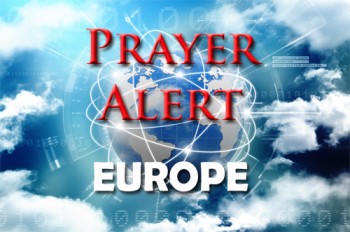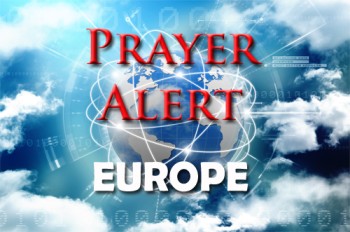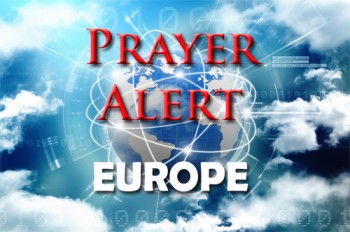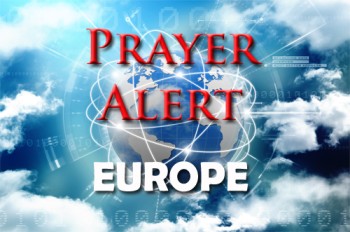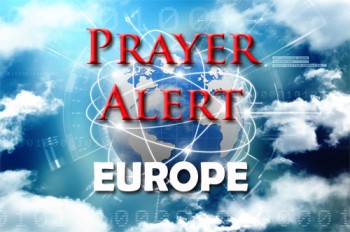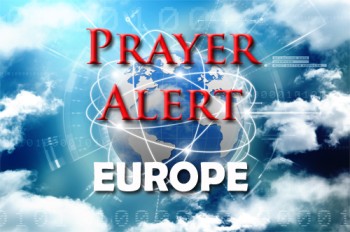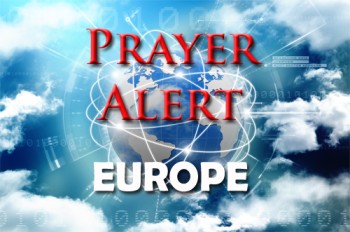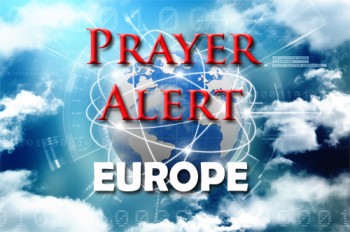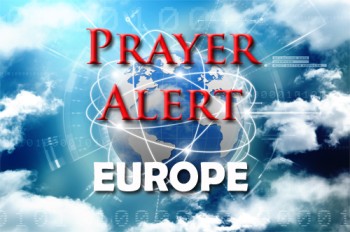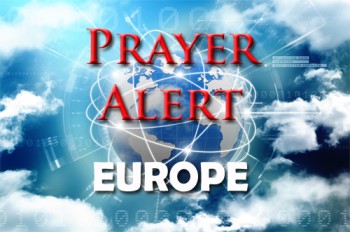Displaying items by tag: Europe
Serbia: hundreds protest against proposed lithium mining
Hundreds of protesters in Loznica, Serbia, have rallied against a planned lithium mining project by Rio Tinto in the region. This followed the ruling Serbian Progressive Party’s rejection of a draft law banning lithium and borate mining. Demonstrators carrying Serbian flags and banners announced one-hour road blockades, vowing to escalate their actions if necessary. Environmentalists argue that the mine could pollute local land and water, threatening agriculture in the region. Lithium, vital for electric vehicle batteries, is a critical material for the EU and the USA. The $2.4 billion project, if realised, could meet 90% of Europe’s lithium needs. In 2022, after mass protests, the government revoked Rio Tinto’s licences for the project. However, president Mr Aleksandar Vucic has now said that mining could start by 2028, arguing that it would significantly boost the economy.
EU: von der Leyen calls for tougher migrant deportations
European Commission president Ursula von der Leyen has suggested that the EU could learn from Italy’s controversial new policy of processing migrants offshore in Albania. She has proposed new legislation to increase deportations, noting that only 20% of irregular migrants ordered to leave EU countries actually do so. Italy’s scheme, which began on 15 October when sixteen migrants were transferred to Albanian processing centres, has sparked criticism from opposition parties and NGOs for being costly and potentially harmful to human rights. The €650 million project excludes vulnerable groups like pregnant women and children. Prime minister Giorgia Meloni defended the scheme as a courageous approach which ‘perfectly reflected the European spirit’. Recently Germany, France, and Poland have tightened their borders and immigration laws, driven in part by security concerns following violent incidents involving failed asylum seekers.
Ukraine: Zelensky optimistic as he meets different leaders
Volodymyr Zelensky has expressed optimism that the current battlefield dynamics could create a chance to end Russia’s invasion by 2025. Speaking at a summit meeting in Dubrovnik, Croatia, he highlighted the importance of Ukraine’s allies, particularly the USA, in achieving peace and long-term stability. He noted that October, November, and December present ‘a real chance’ for decisive action, but did not explain how that would happen. Russian forces now hold nearly 20% of Ukraine's territory, and are closing in on another key town, Toretsk. Zelensky also called for Ukraine’s integration into NATO as a means to strengthen its position in any potential negotiations with Russia. At the time of writing he is in London, to meet Keir Starmer and Mark Rutte, NATO’s secretary general, and will then fly to Rome to meet Pope Francis.
EU: von der Leyen criticises Hungary’s policies
European Commission president Ursula von der Leyen has sharply criticised Hungary's foreign policies, accusing Viktor Orban of endangering European security. In a speech to the European parliament, she took aim at Hungary's reluctance to support Ukraine in its war with Russia and its growing relationships with Russia and China. She said that Orban's government is weakening EU unity by easing visa restrictions for Russians and Belarusians, and allowing Chinese police to operate in Hungary. Von der Leyen also stressed the dangers of Hungary’s continued reliance on Russian energy and its failure to align with EU energy security measures. Orban, in response, defended his policies, calling for a ceasefire in Ukraine and rejecting any comparison between Ukraine's current situation and Hungary’s 1956 uprising against Soviet rule.
Ukraine: Russia captures strategic town
Russia has captured the strategic eastern Ukrainian town of Vuhledar, a significant blow to Ukraine as it faces its third wartime winter. Russian soldiers have raised their flag over the devastated town, once home to 14,000 people but now reduced to just over a hundred. Ukraine’s military confirmed their withdrawal, citing the threat of encirclement as Russian reinforcements arrived: their manpower advantage had finally broken Ukraine’s fierce resistance.The town sits at a crucial junction of Ukraine’s eastern and southern fronts: Ukraine now has to fight to stop the Russians advancing further west, making the prospect of retaking territory even more remote. This comes just after Volodymyr Zelensky's return from the USA, where he secured aid but not the security guarantees he sought. With Ukraine’s energy infrastructure still under attack, the coming winter will test its resilience even further.
Russia: journalists associated with Navalny put on trial
Four Russian journalists have gone on trial in Moscow, accused of involvement in an ‘extremist’ group linked to FBK, an organisation set up by the late dissident Alexei Navalny. The defendants face up to six years in prison if convicted. The trial, which closed to the public after a brief open session, underscores the worsening climate for press freedom in Russia. The prosecutors allege that the journalist contributed to content for the YouTube channel run by FBK, which has been labelled an extremist organisation. As Russia tightens its grip on the media, 34 journalists and six other media workers are currently in detention, according to Reporters without Borders. Russia has intensified pressure on both domestic and foreign reporters since the start of its war in Ukraine.
Austria: far-right politician is the man to beat
Herbert Kickl, the far-right leader of Austria’s Freedom Party (FPO), is the man to beat in the parliamentary election on 29 September despite being one of the country’s least popular politicians. Known for his abrasive and provocative style, Kickl has positioned the election as a referendum on his leadership, with polls showing a close race between his party and chancellor Karl Nehammer’s conservative People’s Party (OVP). The FPO, which advocates tougher immigration laws and criticises the current OVP-Greens government, has capitalised on Austria’s struggling economy and high inflation. However, Kickl’s controversial views, including opposition to sanctions on Russia and promotion of conspiracy theories, have alienated other party leaders, who have vowed not to work under him. His aggressive personality and connections to far-right ideology make coalition-building difficult, and his future as Austria’s leader remains uncertain.
Serbia: judo champion suspended for making the sign of the cross
Serbian judo champion Nemanja Majdov has been suspended for five months by the International Judo Federation (IJF) for making the sign of the cross during the Paris Olympics. The 28-year-old did this before his round of 16 match, violating the IJF's code of ethics, which prohibits religious gestures on the field of play. Majdov had previously been warned in 2018 and 2022, making this his third violation. Responding on social media, he expressed no regret for his actions. Rather, he affirmed his faith, stating that God is central to both his personal life and career, and vowed to return to competition next year with renewed determination. Despite his suspension, Majdov remains proud of his accomplishments, including winning the 2023 European Championship and three world medals. The IJF stated that the rules aim to ensure respect and equality for all cultures, religions, and orientations within the sport. Religious expressions are allowed outside the field of play but not during competitions.
Central Europe: Storm Boris causes widespread devastation
Central Europe has been severely affected by Storm Boris, bringing heavy rain and snow and causing flooding across Poland, the Czech Republic, Romania, and Austria, with at least 24 reported deaths. In Poland, the town of Nysa has seen the evacuation of 40,000 residents, and other towns face severe damage after rivers overflowed. A state of natural disaster has been declared, with Wroclaw expecting more flooding. Meanwhile, rivers like the Oder and Danube are rising, with Slovakia, Hungary, and Croatia also preparing for potential floods. Emergency services, aided by the military, are working tirelessly across the region to protect communities. On 19 September, Storm Boris reached northern Italy, with similar reports of devastation: see Extreme rainfall is becoming more frequent and intense across central Europe, as across much of the world.
Portugal: firefighters die battling wildfires
To date, seven Portuguese firefighters have died while battling over fifty wildfires ravaging the country’s central and northern regions. Portugal has mobilised around 5,300 firefighters and has also called for EU help. The fires have forced the closure of major motorways and disrupted train services in the north. Though authorities describe the situation as ‘calmer but still worrying’, many villages remain under threat. The hardest-hit area, Aveiro district, has lost dozens of homes, with four deaths reported. The fires, which have already burned through more than 10,000 hectares (24,710 acres) of forest and shrubland, could engulf a further 20,000 hectares. Portugal and Spain have so far recorded fewer fires than usual this year, but both remain vulnerable to the increasingly hot and dry conditions caused by global warming.
